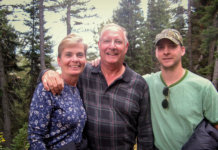
Photo by rawpixel.com from Pexels
Interview with Jay Hughes and Barbara Hauser:
A Mission Statement is a declaration of what the family’s goals are and what they want to achieve. Many families assume they must begin their governance work by having a Mission Statement. The Family Office Association recently interviewed Jay Hughes and Barbara Hauser about their views on Mission Statements. In the 2nd of this 3-part series their answers and insights are summarised.
What are the benefits of writing a Mission Statement?
Hughes: Sometimes family offices want to see a Mission Statement to get a sense of whether the family knows what it’s doing. Do we have a common purpose? Maybe we should have a Mission Statement to see if we have a common purpose?
If the first generation is still living, even if it has sold its enterprise, it has used these corporate forms, which bleed over into its family operations. So the first generation does this as a first piece of work just like it was starting a business with no process. If the first generation is living and decides there should be a Mission Statement, it’s usually a legacy document of that generation’s desires. It’s really not a Mission Statement. I’ve said just write an ethical will and be done with it.
If a second or later generation is initiating the process, often those generations have to govern themselves rather than be directed like a first generation. Their documents tend to come to life after they’ve done a significant amount of work on how to govern themselves, and thought about whether or not they even want to be a family. So their documents are actually used.
If you get into the second generation or maybe the third and it decides to have a Mission Statement, it often is a statement of both those generations about their common purpose as a family. It often has some social component toward the outside world in the sense that it includes the question of being good citizens and philanthropy.
Hauser: In place of a standard Mission Statement, I like to help families create a preamble to a family constitution, much like the preamble to the U.S. Constitution: “We the People of the United States, in order to form a more perfect Union, establish justice, insure domestic tranquillity, provide for the common defence, promote the general welfare, and secure the blessings of liberty to ourselves and our posterity, do ordain and establish this Constitution for the United States of America.”
The family preamble would similarly define their purpose and what they are trying to achieve.
Hughes: My worry about Mission Statements is that if you don’t know where you’re going — which is the Vision Statement — then how do you have a mission? I’ve been thinking over the years that the most important thing is the Vision Statement. The Vision suggests why, the Mission suggests how. So a Vision Statement, which is common in families, and is not used in the same way, is a better starting point. Then the Mission Statement can say how will we make that vision come true?
Hauser: If a family wanted a Mission Statement, I’d ask ‘why do you want one?’ Another way of asking that is, ‘what’s your goal?’. I’d pay a lot of attention to their answer. It has to be better than, ‘because everyone says I need to have one.’
I do a lot of work in Saudi Arabia, where the demographics are similar to the U.S. 30 years ago, with the patriarch ready to make a transition. The next generation of sons is extremely well educated and aware of the difficulty of keeping a business in the family. They also have a lot of litigation. So their mission would be to do what they can to keep ownership of the business in the family and avoid conflicts.
I come in when families want to be proactive and want to make some changes. I assist them in defining where they want to end up and then I can help them.
Hughes: Barbara’s earlier points about the Preamble to the Constitution are very apt. In the United States, after its independence from Britain, we didn’t know how to govern ourselves. People couldn’t make decisions together. But eventually, we wrote the Constitution and the Preamble begins, “We the people…” There were a lot of “family members” — Americans — who didn’t want that. But even they agreed there had to be a common decision-making body.
The people who’d be governed by these documents worked together. They didn’t just sit down and write them. Documents that are useful have to be a reflection of experience rather something you purchase and then try to make it work.









